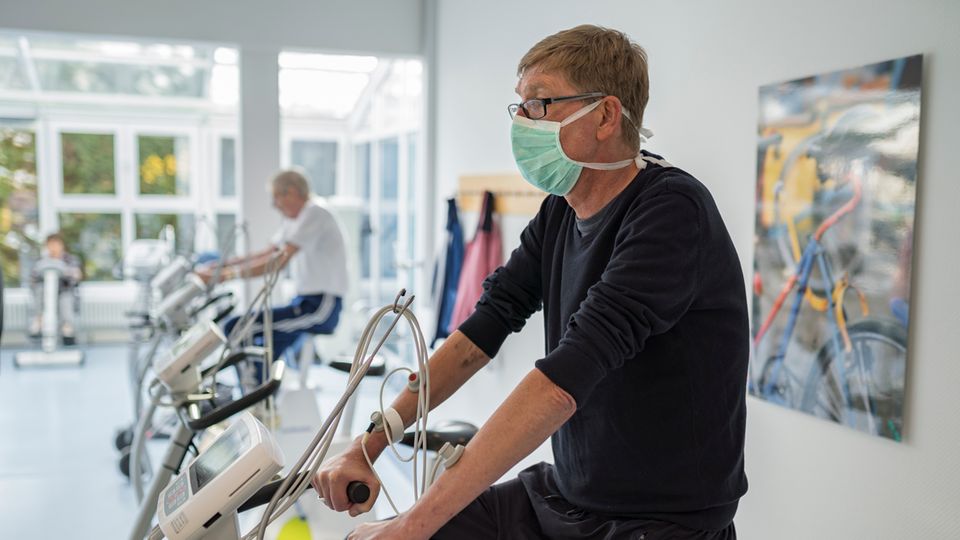save lives
On today’s Organ Donation Day: What you should know
An organ donation can save lives – the scar tells the story of the donation
© Getty Images
An organ donation can save lives. We explain how an organ donation works, when a person is brain dead and who gets the organs.
In Germany, thousands of people are waiting for an organ donation, most of them for a kidney. However, there are far fewer people willing to donate than people who need a new organ. Anyone who wants to donate their organs after their own death can document their wishes in an organ donor card. Since March 18, 2024, it is also possible to express their wishes for or against organ donation in a We explain which organs can be donated in Germany and how organ donation works.
How many people in Germany need an organ donation?
In Germany, almost 8,500 people are on the waiting list for a donor organ. In 2022, there were 869 organ donors nationwide. That is 10.3 donors per million inhabitants.
In 2022, 743 people died on the waiting list for organ donation. In 2022, there were 869 post-mortem organ donations in Germany. That is 64 fewer than in the previous year. In 2017, there were only 797 people in the whole of Germany who donated organs after their death – that was the lowest level in 20 years.
Which organs can actually be donated?
When we talk about organ donation, we are talking about kidneys, heart, liver, lungs, pancreas and the small intestine. Tissue can also be donated, for example the cornea or skin. In Germany, most people are waiting for a kidney. Since everyone has two kidneys but only needs one to survive, this organ can also be donated while still alive.
Are all these organs removed from organ donors?
Not necessarily. Before organs are removed, doctors check the condition of the organs during a medical examination. Only organs that are still functional are removed. Organ donors can also note on their ID that only certain organs may be removed after their death.
What requirements must be met for organ donation?
- Before their death, the person must have recorded their wish to donate organs in an organ donor card or a living will. If the deceased’s attitude is unknown, relatives must consent to a donation.
- The person must be brain dead. However, the organs must continue to be supplied with blood.
- A medical examination must show that the deceased person was in good health. Cancer or infectious diseases must be ruled out. Only functioning and healthy organs are removed.
- There is no age limit for organ donation.
How does organ donation work?
In the first step, the requirements for organ donation are clarified. If a deceased person has agreed to organ donation before death and their organs are still healthy, they are removed in an operation. According to the Federal Center for Health Education (BZgA), this is carried out with the same level of care as with living patients.
In order to find suitable recipients, the donor organs are medically examined and tissue characteristics and blood type are recorded. If a suitable recipient is found, he or she receives the organ transplanted in an operation. In order for an organ transplant to be successful in the long term, a rejection reaction must be prevented. To do this, transplant recipients must take medication that suppresses the immune system.
What does it mean when someone is brain dead?
When someone has suffered brain death, important parts of the brain no longer function. In other words, it no longer functions and never will again. In medicine, this is referred to as an “irreversible loss of brain function”. Only intensive medical measures can keep the cardiovascular system alive artificially. This means that the organs of a deceased person can continue to be supplied with oxygen and remain functional. Without intensive medical measures such as artificial ventilation, brain death would quickly lead to cardiac arrest. According to the BZgA, brain death is a rare phenomenon that can only be diagnosed in the intensive care unit of a hospital.

“It’s a crazy feeling” – Gerd and his new heart
02:11 min
When can a doctor declare a person brain dead?
Brain death is determined through a multi-stage medical procedure. At least two specially qualified doctors must diagnose brain death independently of each other. There are strict requirements for this from the German Medical Association and it can take several hours to days.
How is it decided who gets a donor organ?
In Germany, there is a waiting list for people who need an organ. Who is placed on the waiting list is decided according to the guidelines of the German Medical Association. There are around 50 transplant centers in Germany where transplants can be performed. They put patients on the waiting list. Data such as medical history, tissue characteristics and blood type are recorded. This data is sent to Eurotransplant. This is a non-profit foundation that organizes the allocation of donor organs. The following criteria play a role in the allocation:
- Young patients and children may be given priority over older people.
- Chances of success of the transplant
- Urgency for survival and quality of life
- The transport time from donor to recipient should be as short as possible.
- Donor and recipient should be of similar weight and height.
- The tissue characteristics should match as closely as possible
Source: BZgA


